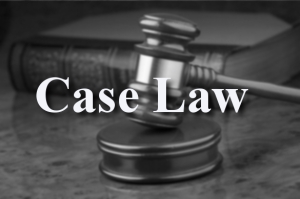 As reported in the Irish Examiner the EAT has awarded €47,500 in the case of Matthews -v- Applus Car Testing Services Limited (UD795/2012) where the employee was dismissed on foot of allegations from a whistle-blower that he drove vehicles belonging to other people to the test centre for testing and tested them himself. We have recently published a post on the new protections for Whistleblowers arising out of the Protected Disclosures Act 2014, which protects whistleblowers from penalisation, however an employer must also be careful to ensure there is enough evidence to address any instances of misconduct aside from just a whilstleblowers testimony.
As reported in the Irish Examiner the EAT has awarded €47,500 in the case of Matthews -v- Applus Car Testing Services Limited (UD795/2012) where the employee was dismissed on foot of allegations from a whistle-blower that he drove vehicles belonging to other people to the test centre for testing and tested them himself. We have recently published a post on the new protections for Whistleblowers arising out of the Protected Disclosures Act 2014, which protects whistleblowers from penalisation, however an employer must also be careful to ensure there is enough evidence to address any instances of misconduct aside from just a whilstleblowers testimony.
Background
In this case the employee was with the company, a national car testing company, since 2002. He was dismissed on 29th November 2011 for driving vehicles belonging to other people to the test centre for testing and testing them himself, an allegation which he disputed. An investigation was commenced in August 2011 after a call was made to the company’s recently established whistle blower phone line. The caller provided a list of registration numbers of cars which the caller alleged that the claimant had tested and that he had known the people who owned the cars. The caller later sent photos of cars to the regional manager who investigated the allegations. The company has a code of integrity that employees receive annual training on which includes the regulation that “driving a vehicle that is not your own to the test centre for a test is not permitted”. The employee gave evidence that he was familiar with the code of integrity.
The employee denied any association with the cars tested, other than his son’s car, which had been tested at a different centre. Following the meeting of 24th November 2011 the claimant was dismissed by letter of 29th November 2011. The letter stated that the employee was in breach of the Code of Integrity for driving vehicles to the test centre that were not his own and testing them. In addition to that the letter noted unacceptable procedures carried out by the employee in regard to end of day procedure, daily record sheets and efficiency
Issues Addressed
- The whistle-blower was anonymous but indicated they were willing to be identified.
- The employee was not advised in the letters to him that his job was a risk.
- There were no written statements given to the claimant and no witnesses were pursued.
- There was no issue with the actual tests were carried out.
- The regional manager said that the claimant tested cars alone after hours when there had been test gaps during that the day and he clocked out afterwards so also gaining time on the clock. There is no rule about testing after 6pm but he did not like it due to health and safety and that code of integrity.
Determination In this case the Tribunal found the process to be unreasonable and stated "the Tribunal believes that the decision arrived at by the respondent was unreasonable in all the circumstances. Much of the evidence grounding the allegations seemed tenuous at best. The employer made assumptions based on addresses and names that seemed to be without foundation. When they were disputed by the claimant the respondent made no effort to investigate further but simply did not accept the claimant’s position." Having reviewed the meetings and evidence of the employer the Tribunal could find no evidence that the claimant drove vehicles to the test centre on behalf of others and subsequently tested them. "It seems to have been a statement put to the claimant with no supporting evidence save for the respondent saying the whistle blower said it. No evidence was adduced at the hearing or during the investigation that the claimant drove vehicles to the test centre for testing, so for this to appear in the letter of dismissal is unreasonable. However, we also believe it was unreasonable for the claimant not to appeal the decision. If the claimant believed the process to have been so unfair it would appear a logical decision to appeal." the Tribunal awarded the employee €47,500 in compensation Notes for Employers Employers should be aware that regardless of where allegations come from there is an onus on them to investigate these matters thoroughly in order to justify any dismissal. in this case the employer did not carry out a fair and thorough investigation process and it cost them dearly in Tribunal.
